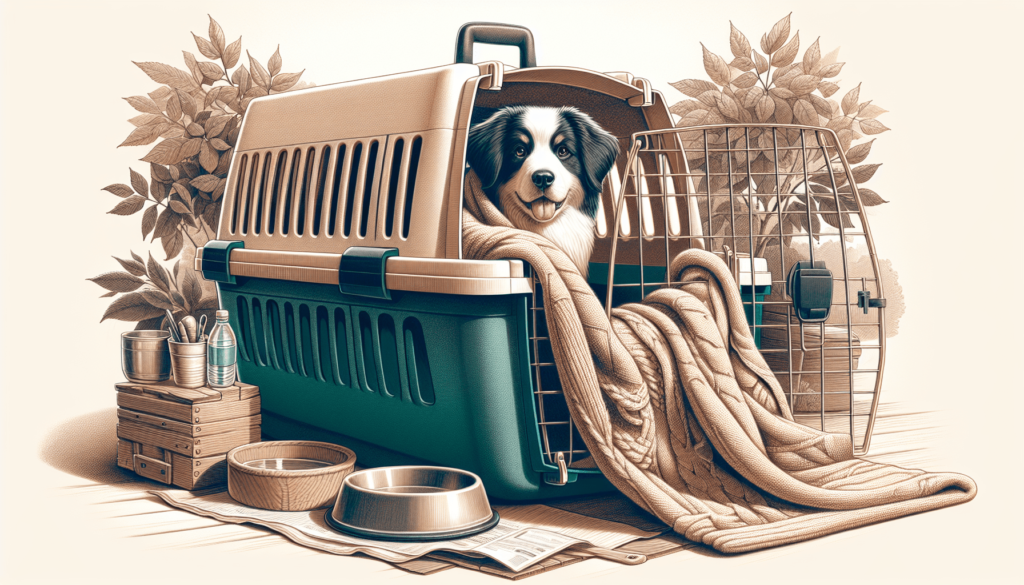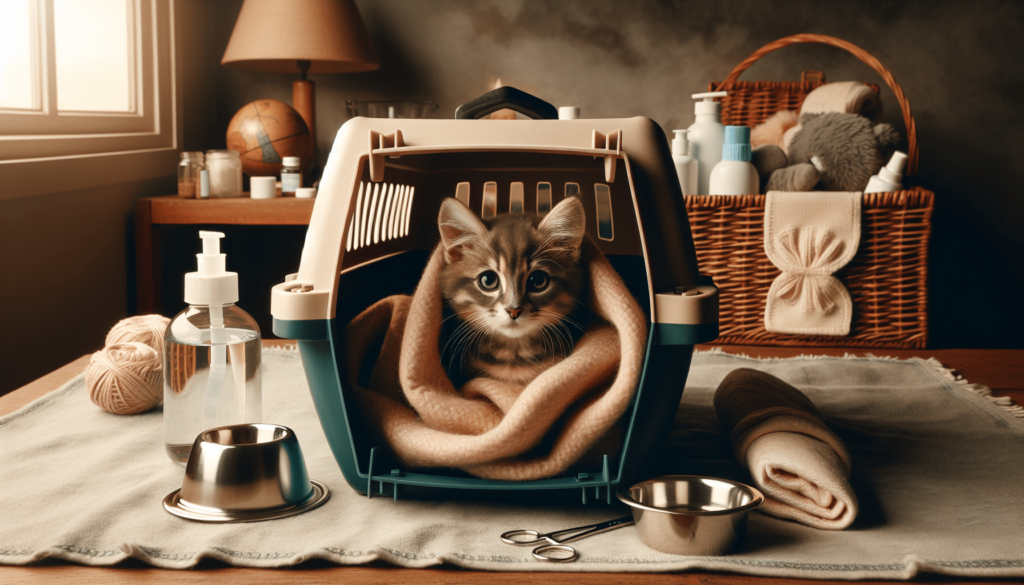How To Prepare Pets For Surgery
Have you ever wondered how to best prepare your beloved pet for surgery? It can be a stressful and emotional time for both you and your furry friend. However, with the right preparation and care, you can help ensure a smooth and successful surgery for your pet. In this article, we will provide you with detailed steps on how to prepare your pet for surgery, from pre-operative instructions to post-operative care. Let’s dive in!
Pre-Operative Instructions
Preparing your pet for surgery begins well before the actual day of the procedure. There are several steps you can take in the days leading up to surgery to ensure that your pet is in the best possible condition.
Make sure to follow any specific pre-operative instructions provided by your veterinarian. These instructions may include fasting your pet before surgery, withholding water, or administering medications as directed. It is crucial to follow these guidelines closely, as they are designed to minimize potential risks during the surgery.
Consultation with the Veterinarian
Before your pet’s surgery, it is essential to have a consultation with your veterinarian. During this consultation, your veterinarian will provide you with detailed information about the surgery, including the risks involved and the expected outcome. This is also an opportunity for you to ask any questions or express any concerns you may have about the procedure.
Ask your veterinarian about any pre-operative tests that may be required before the surgery, such as bloodwork or x-rays. These tests are crucial for determining your pet’s overall health and identifying any underlying conditions that may affect the surgery.
Pre-Surgery Diet and Nutrition
Proper nutrition plays a vital role in preparing your pet for surgery. A balanced diet can help strengthen your pet’s immune system and promote faster healing after the surgery. In the days leading up to the procedure, make sure to feed your pet a high-quality diet that is rich in nutrients.
Avoid feeding your pet any fatty or oily foods before surgery, as these can cause digestive issues and complicate the anesthesia process. Stick to your pet’s regular diet and avoid any new or unfamiliar foods that may upset their stomach.

Medication Management
If your pet is currently taking any medications, it is essential to discuss these with your veterinarian before the surgery. Your veterinarian will advise you on whether your pet should continue taking their medications leading up to the procedure. In some cases, certain medications may need to be adjusted or temporarily discontinued before surgery.
Make sure to inform your veterinarian of any supplements or over-the-counter medications your pet may be taking, as these can also have an impact on the surgery. It is crucial to have a clear understanding of how to manage your pet’s medication regimen during the pre-operative period.
Pre-Surgery Instructions for Dogs
When preparing your dog for surgery, there are several specific instructions to keep in mind. Make sure to take your dog for a walk before the surgery to allow them to relieve themselves and reduce any anxiety they may be feeling. Avoid giving your dog any food or treats in the hours leading up to the procedure to prevent nausea or vomiting.
If your dog is prone to stress or anxiety, consider using calming techniques such as playing soothing music or providing a favorite toy or blanket. This can help keep your dog relaxed and comfortable before the surgery.
Pre-Surgery Instructions for Cats
Preparing your cat for surgery requires some additional considerations due to their unique needs and behaviors. Keep your cat indoors the night before the surgery to prevent them from wandering off or getting into any accidents. Avoid giving your cat any food or treats in the hours leading up to the procedure to prevent nausea or vomiting.
Provide your cat with a quiet and comfortable space to rest before the surgery, away from any loud noises or disturbances. Consider using pheromone sprays or diffusers to help calm your cat and reduce any stress or anxiety they may be experiencing.

Post-Operative Care Instructions
After your pet’s surgery, it is crucial to follow all post-operative care instructions provided by your veterinarian. These instructions are designed to promote a smooth recovery and minimize any complications that may arise. Here are some essential post-operative care tips to keep in mind.
Home Environment
Create a calm and comfortable environment for your pet to recover in after the surgery. Keep your pet in a quiet and secure area of the house, away from any loud noises or other pets. Provide your pet with a warm and cozy bed or blanket to rest on, and make sure they have easy access to food, water, and a litter box (for cats).
Monitoring
Keep a close eye on your pet’s behavior and condition after the surgery. Monitor for any signs of pain, discomfort, or unusual symptoms, such as excessive drooling, lethargy, or vomiting. If you notice any concerning changes in your pet’s behavior, contact your veterinarian immediately.
Medication Administration
Follow your veterinarian’s instructions for administering any medications prescribed for your pet after the surgery. Make sure to give the medications at the correct dosage and frequency, and do not discontinue them prematurely. If you have any questions or concerns about the medications, do not hesitate to contact your veterinarian for clarification.
Wound Care
If your pet has an incision or wound from the surgery, it is essential to keep it clean and dry to prevent infection. Check the incision site regularly for any signs of redness, swelling, or discharge. Do not allow your pet to lick or chew at the incision, as this can delay healing and increase the risk of infection.
Physical Activity
Limit your pet’s physical activity and exercise during the recovery period to allow for proper healing. Restrict your pet’s movement to prevent them from overexerting themselves or causing any injury to the surgical site. Follow your veterinarian’s recommendations for gradually reintroducing exercise as your pet’s condition improves.
Follow-Up Appointments
Schedule follow-up appointments with your veterinarian as recommended to monitor your pet’s progress and ensure that they are healing properly. These appointments are an opportunity for your veterinarian to assess your pet’s recovery and address any concerns or issues that may arise. Make sure to keep all follow-up appointments and communicate any changes in your pet’s condition to your veterinarian.
Additional Tips for Pet Recovery
In addition to the post-operative care instructions provided by your veterinarian, there are several additional tips you can follow to help your pet recover after surgery.
- Provide your pet with plenty of love, attention, and reassurance during the recovery period. Your presence can help comfort your pet and reduce any stress or anxiety they may be feeling.
- Keep your pet’s living area clean and sanitary to prevent the spread of infection. Wash your pet’s bedding, toys, and food and water dishes regularly to maintain a hygienic environment.
- Offer your pet small, frequent meals to prevent nausea and promote digestion. Make sure to provide fresh water at all times and encourage your pet to stay hydrated.
- Keep an eye on your pet’s weight and body condition during the recovery period. Contact your veterinarian if you notice any changes in your pet’s appetite, weight, or overall condition.
- Stay in close communication with your veterinarian throughout the recovery process. Update your veterinarian on your pet’s progress, ask any questions or concerns you may have, and follow their recommendations for ongoing care.
By following these pre-operative and post-operative instructions, you can help ensure a successful and smooth surgery for your pet. Remember to provide your pet with plenty of love, care, and attention throughout the recovery process. If you have any questions or concerns about your pet’s surgery, do not hesitate to reach out to your veterinarian for guidance and support. Your pet’s health and well-being are worth the extra effort and care you put into preparing them for surgery.

